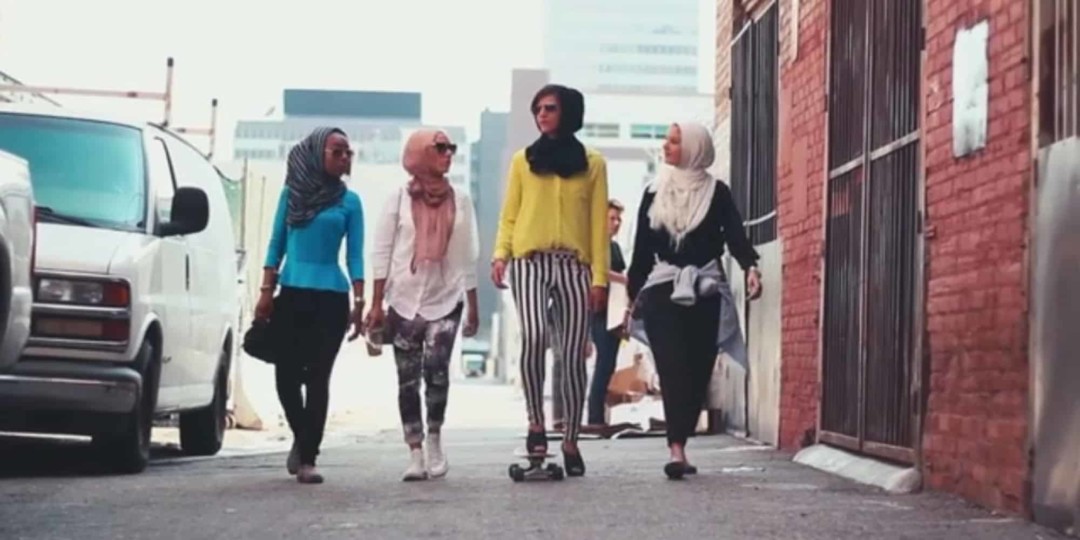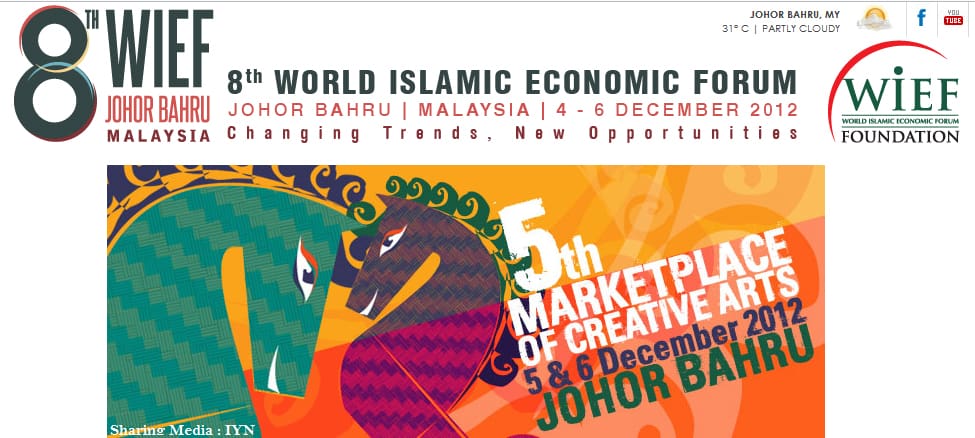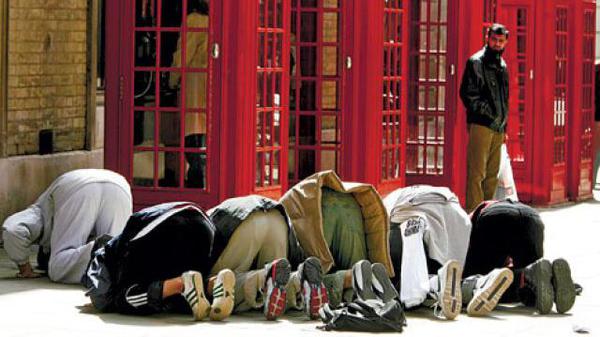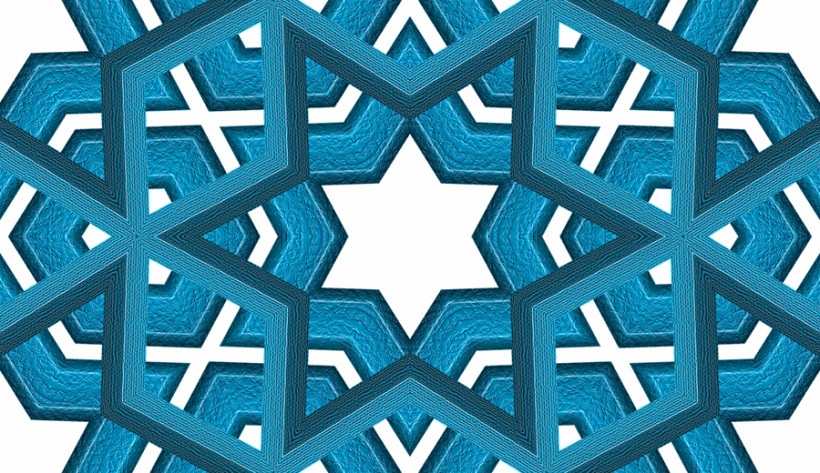Dead serious or pink and fluffy; the ultimate oppressed ‘Other’ or wordly modern citizen and consumer? Talk and visions of Islam and Muslims remain characterised by stark polarisation – with sombre undertones often setting their tenor. This week Allegra devotes its attention to the ‘middle ground’, or perhaps merely more nuanced discussions, through our first ever #ANTHROISLAM week featuring a discussion with ‘shariah’ expert Baudouin Duprêt, curated lists of recent and classic publications, and commentary on the by now viral #HappyMuslims video. The week culminates around a very special & unexpected AVMoFA artefact from Denmark.
This thematic week inserts itself in the continuity of a series of snapshots of British Islam recently published in Allegra, which aimed to come to grips with the multifaceted ways Islam appears in British public life. These snapshots built on ethnographic anecdotes I collected during successive periods of fieldwork conducted between 2009 and 2014 in various British cities and focused on spaces where Islam has become visibly present.
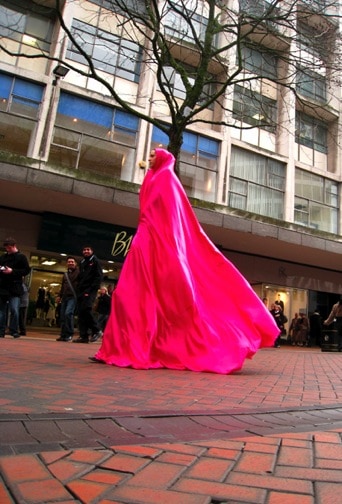
Using Nilüfer Göle’s metaphor of ‘snapshots’ (2000) as methodological entry points into ‘multiple modernities’, these ethnographic vignettes sought to trace the diversity of British Islam as it unfolds in various urban settings. By putting these fragments together (Kandiyoti & Saktanber 2002), my aim was to complicate current representations of Islam and highlight its intrinsic heterogeneity as well as its entanglement within broader political projects put in place in the post 9/11 context.
Since my early periods of fieldwork in the UK (Billaud 2014), my interest in the British ‘shari’ah field’ has expanded to incorporate spaces where modes of sociability, leisure and consumption labelled as ‘Islamic’ have recently emerged. These include: halal speed dating and Muslim networking events, the World Islamic Economic Forum (which took place in London for the first time in 2013), marriage preparation courses and professional Islamic mediation services. I am especially interested in the issue of Islamic expertise, as it is sold on the ever-growing market of identities (Billaud 2012). By observing the work of experts involved in a Working Group dealing with Muslim Marriages at the Ministry of Justice and lawyers specialising in Islamic law, the practices of moral entrepreneurs involved in the areas of marriage and mediation and businessmen specializing in halal financial products, my aim is to investigate how the ‘Shariah’ (and Islamic norms more generally) circulates in British public space, as well as how it is appropriated by the various actors who mobilize it (sometimes for commercial purposes). This work documents Shariah in a neo-liberal and secular context, where state interventions participate in contradictory ways in the making of a legal field which is both embraced for its commercial potential and contested for its supposed discrimination against women. More generally, this research critically investigates issues of citizenship, multiculturalism and identity in ‘normalized’ times of crisis.
Everyday Politics
Up to recently, a significant part of the literature on Islam has focused on the emergence of organised religious movements and their increasing influence in politics worldwide (Kepel 2006; Roy 1992; Ismail 2006). Less attention has been paid, however, to the everyday social practices and cultural encounters that contribute to the reshaping of public life and the recasting of the political in Western societies. In recent years, however, social scientists’ renewed interest in Islam has been marked by a greater focus on Muslims’ ethical self-fashioning and everyday forms of political engagement. Anthropologists have documented the ambiguous meanings of clothing (Moors 2003), modes of consumption and sociability (Deeb & Harb 2013), as well as everyday forms of religiosity (Schielke 2010; Fadil 2009). As Eickelman and Salvatore put it: “the contemporary ‘publicization’ of Islam is often more commonly rooted in practice than in formal ideology” (2004, xiii).
In my on-going work on the Islamic legal culture of England, I concentrate on the disciplinary and performative power of everyday legal practices (understood in the broadest sense of the term) and explore possibilities of cross-cultural convergences and the emergence of a distinct mode of being Muslim in the West.
That public life offers an ideal entry point into these transformations is evident. Indeed, it is because the public is the space in which social actors play public roles and present themselves to others, that it is where the opportunity to experience sameness and difference is most likely to occur. It is through the encounter with difference that a political consciousness emerges. The visible presence of Islam in public questions the taken for granted telos of modernity because in Western political tradition modern citizen-making has traditionally been thought as deriving from the withdrawal of religion in the private realm. Yet, a closer look at young British Muslims’ habitus demonstrates that the voluntary adoption of ‘symbols of stigma’ (Göle 2003) such as the veil for women or beards for men is less a sign of communitarian withdrawal than a means to assert a political identity and refuse victimization.
If morality is a central component of subjectivity, Muslims – like anyone else – are not cut off from the various effects and influences of globalization. If Islam is an important and increasingly compelling source of inspiration for many Muslims around the world, it is certainly not the only one to impact on otherwise complex and imperfect lives. Other influences, such as neoliberal policies and state-sponsored programs, have deeply impacted Muslims’ perceptions of themselves and their relationship to the ‘good ethical life’.
Islam as a framework for modern identity making
According to Taylor (1989), our modern conceptualization of the self is linked to morality. Morality means not simply a set of claims about what one ought to do or not do to be moral; rather, it means what one ought to be or not be. The ‘making of the modern identity’ follows inescapable frameworks that constitute backdrops upon which the ‘good and meaningful life’ is defined. In his attempt to explore ‘the background picture lying behind our moral and spiritual intuitions’ (1989, 8), Taylor identifies a transition from an external sense of the self where meaning is found in extraordinary deeds to an interior sense of the self where meaning is located in everyday actions. The peculiar inwardness of post-Cartesian subjectivity represents a framework that ‘incorporates a set of crucial qualitative distinctions that provide a sense of good and higher forms of life’ (Göle 2007, 4).
One could argue that Islam provides a new framework for leading a moral life, a framework that is both emancipated from Western modernity but that remains contemporaneous to it. Indeed, the new actors of the Islamic revival testify of subjectivities oriented towards ‘moral life’.
Their postures are both inward and outward looking: their command of Islamic knowledge is a source of self-empowerment, a form of ‘care of the self’ (Agrama 2010) that nurtures a sense of distinction. However, in their quest for self-betterment, they do not passively reproduce a traditional lifestyle but they rather project a view of what ethical living ought to be. This personalized form of religiosity goes hand in hand with a desire to improve the world around them. In this sense, religiosity sets the condition of possibility for broader political action.
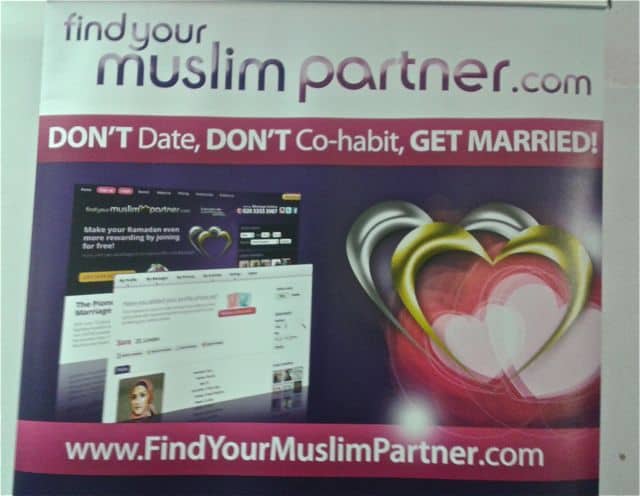
It is this modern translation of Islam that best characterizes the global Islamic revival with its emphasis on civility, public virtue, justice and pluralism. Indeed, Muslims’ re-appropriation of Islamic norms in their interaction with Western modernity opens up a space for creative iteration. As Derrida (1982) suggests, mimesis is never only about the identic reproduction of an original. There is no original authentic truth, but rather spiraling repetitions in shifting contexts, each with its own ‘trace’. Derrida thus argues that replication involves as much the production of sameness as the inescapable deferral – in time and space – of that sameness: what he calls ‘differance’, a trace of an original in the process of being erased. Iteration is therefore always a creative performance.
British Muslims can therefore be compared to translators, in the sense developed by Walter Benjamin (1968). In the same way as a translator “seeks to release in his own language that pure language which is under the spell of another, to liberate the language imprisoned in a work in the re-creation of that work” (1968, 80), British Muslims are equally involved in an exercise that combines literalness and freedom. Their translation follows a specific aesthetics that illustrates and maintains their distinction. Their cultural productions are the result of the sedimentation of multiple cultural capitals acquired within the movement of globalisation. Their public performances challenge hegemonic cultural narratives of modernity as the sole property of the West and simultaneously disentangle Islam from a clear geographic origin.
These creative iterations tell a slightly different story from the metanarrative of modernity with which we are familiar; namely that ‘modernity’ would necessarily involve fundamental ruptures and discontinuities (Englund & Leach 2000). If elements of ruptures and discontinuities can be traced, the everyday social practices of actors interacting within the British Islamic field also participate in the making of a ‘community of sentiment’ (Appadurai 1996) in which the work of imagination is transformed for Muslims and non-Muslims alike.
Find the integral content of our #anthroislam week here
SOURCES
Agrama, Hussein Ali. 2010. « Ethics, Tradition, Authority: Toward an Anthropology of the Fatwa ». American Ethnologist 37 (1): 2‑18.
Appadurai, Arjun. 1996. Modernity at Large: Cultural Dimensions of Globalization. Minneapolis: U of Minnesota Press.
Asad, Talal. 1986. « The Idea of an Anthropology of Islam ». Center for Contemporary Arab Studies, Georgetown University Occasional Paper Series.
Benjamin, Walter. 1968. Illuminations. Harcourt. New Yorck: Hannah Arendt.
Billaud, Julie. 2012. « Watching “Sharia Business” at Close Quarter ». Verfassungsblog. http://verfassungsblog.de/watching-sharia-business-close-quarter/.
———. 2014. « “A Simple Way of Getting to Paradise”: Ethics and Affects in British Sharia Councils ». In Islam and Public Controversy in Europe, Ashgate, 159‑172. London.
Deeb, Lara, & Mona Harb. 2013. Leisurely Islam: Negotiating Geography and Morality in Shi’ite South Beirut. Princeton: Princeton University Press.
Derrida, Jacques. 1982. Margins of Philosophy – Différance. University of Chicago Press. Chicago.
Englund, Harri, & James Leach. 2000. « Ethnography and the Meta‐Narratives of Modernity ». Current Anthropology 41 (2): 225‑248.
Fadil, Nadia. 2009. « Managing Affects and Sensibilities: The Case of Not-Handshaking and Not-Fasting ». Social Anthropology 17 (4): 439‑454.
Göle, Nilüfer. 2000. « Snapshots of Islamic Modernities ». Daedalus 129 (1): 91‑117.
———. 2003. « The Voluntary Adoption of Islamic Stigma Symbols ». Social Research 70 (3): 809‑828.
———. 2007. « Islam, European Public Space, and Civility ». Eurozine, mai.
Hirschkind, Charles. 2006. The Ethical Soundscape: Cassette Sermons and Islamic Counterpublics. New York, Chichester: Columbia University Press.
Ismail, Salwa. 2006. Rethinking Islamist Politics: Culture, the State and Islamism. I. B. Tauris.
Kandiyoti, Deniz, & Ayşe Saktanber. 2002. Fragments of Culture: The Everyday of Modern Turkey. New Brunswick, N.J.: Rutgers University Press.
Kepel, Gilles. 2006. Jihad: The Trail of Political Islam. I.B.Tauris.
Mahmood, Saba. 2005. Politics of Piety: The Islamic Revival and the Feminist subject. Princeton: Princeton University Press.
Moors, Annelies. 2003. « Islam and Fashion in the streets of San’a ». Etnofoor 16 (2): 41‑56.
Roy, Olivier. 1992. L’échec de l’islam politique. Seuil.
Salvatore, Armando, et Dale F. Eickelman. 2004. Public Islam and the Common Good. BRILL.
Schielke, Samuli. 2010. « Second Thoughts about the Anthropology of Islam or How to make sense of grand schemes in Everyday Life ». Zentrum Modern Orient Working Papers.
Taylor, Charles. 1989. Sources of the self: the making of the modern identity. Harvard University Press.

